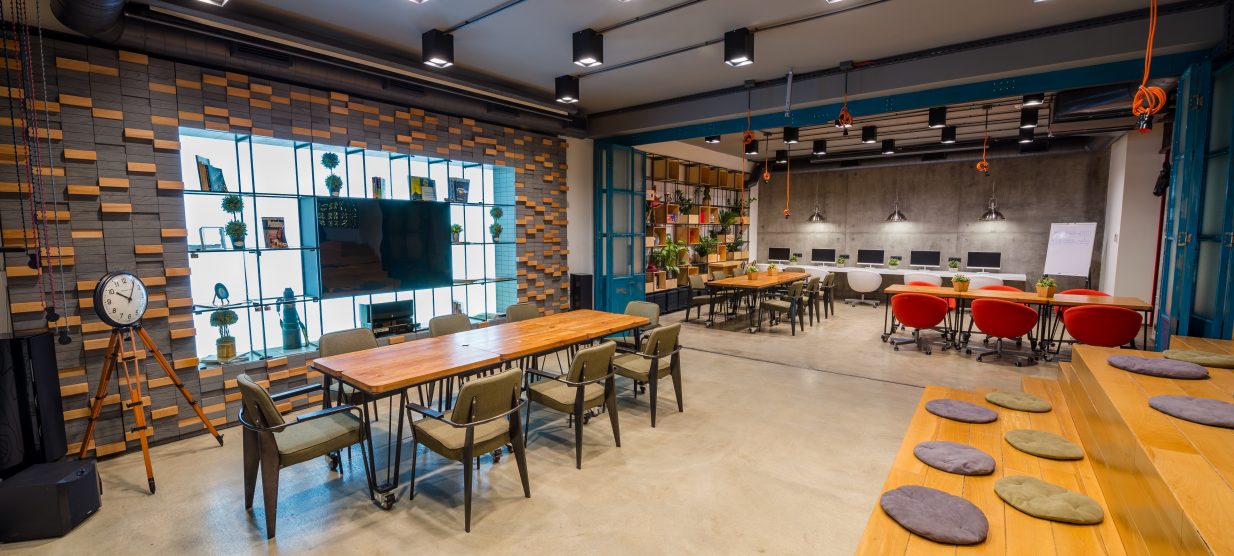Understanding the Growing Popularity of Flexible Office Spaces
The workplace landscape has undergone a dramatic transformation in recent years, and at the heart of this shift lies the growing appeal of flexible office spaces. These dynamic environments have redefined how businesses think about offices, offering adaptability, cost savings, and a modern approach to professional life.
But why are flexible office spaces gaining such momentum? From startups to established enterprises, the benefits they provide make them an attractive solution in today’s evolving world of work. Here’s a closer look at what’s driving this trend and how it’s shaping the future of work.
Adaptability for Changing Needs
One of the most significant advantages of flexible office spaces is their ability to adjust to the changing needs of businesses. Unlike traditional office leases, which can lock companies into multi-year commitments, flexible offices offer short-term agreements or pay-as-you-go models that provide unparalleled freedom.
For startups or rapidly scaling businesses, this adaptability is a game-changer. It allows organizations to add or reduce space as their team size fluctuates, ensuring that they’re never paying for more than they need. Even established companies benefit from this flexibility, especially when entering new markets or launching temporary projects.
Catering to the Remote Work Hybrid Model
Remote and hybrid work models have become the norm for many industries, and flexible office spaces perfectly complement this shift. With a growing preference for working from home or on a hybrid schedule, companies no longer need vast amounts of dedicated office space.
Flexible office providers offer solutions such as hot-desking, shared coworking spaces, and on-demand meeting rooms, empowering employees to work wherever they’re most productive. This model bridges the gap between remote work and in-person collaboration, giving teams a centralized place to meet without requiring a full-time office.
Cost Efficiency for Businesses of All Sizes
The financial benefits of flexible office spaces are hard to ignore. Traditional office leases often come with high upfront costs, including deposits, fit-outs, and furnishing. Flexible spaces, on the other hand, often come fully furnished and equipped, eliminating the need for these expenses.
Additionally, businesses save on operational costs, as flexible office providers typically include utilities, maintenance, and various amenities in their pricing. For small businesses or those focused on managing cash flow efficiently, this streamlined expense structure is invaluable.
Encouraging Collaboration and Innovation
Flexible offices are designed with collaboration and creativity in mind. Shared coworking environments naturally foster networking and the exchange of ideas, often leading to unexpected partnerships or innovative breakthroughs.
Many flexible office spaces also feature a mix of open-plan areas, private offices, and meeting rooms, giving teams the flexibility to work together or apart depending on their needs. Some spaces even host community events, workshops, or networking opportunities, creating a vibrant atmosphere that connects like-minded professionals.
A Solution for a Growing Startup Ecosystem
The startup culture thrives on agility, and flexible office spaces have emerged as a vital resource for these entrepreneurial ventures. For early-stage startups, traditional office leases are often financially and operationally prohibitive. Flexible offices, however, enable startups to establish a professional presence without overcommitting their resources.
As startups grow, they can expand their footprint within the same building or provider network, simplifying the scaling process. This scalability ensures that the office space evolves alongside the business, reducing the friction of growth.
Supporting Big Businesses with Decentralized Offices
Large enterprises are also capitalizing on the benefits of flexible office solutions. Instead of relying entirely on a central corporate headquarters, many companies are setting up smaller satellite offices in multiple locations to reduce employee commute times and improve work-life balance.
Flexible office spaces make this decentralized model easy to implement, offering companies access to high-quality workspace in key urban or suburban locations. This approach not only enhances employee satisfaction but also enables businesses to maintain a global presence with minimal overhead.
Modern Amenities and Services
Another appeal of flexible office spaces is the suite of amenities and services they provide. From stylishly designed spaces to fast internet, fully equipped kitchens, and professional receptionists, these workspaces are crafted to improve employee productivity and comfort.
Some providers go above and beyond by offering wellness rooms, event spaces, fitness centers, and even childcare services. For companies aiming to create an appealing workplace culture, these features are a significant draw.
A Glimpse into the Future of Work
The rise of flexible office spaces is a direct response to how modern work has evolved. Flexibility, adaptability, and collaboration have become priorities in a world where work no longer revolves around a fixed location.
By removing the constraints of traditional office setups, flexible offices empower businesses to pivot, grow, and thrive in an unpredictable landscape. This shift isn’t just a trend; it’s a fundamental reshaping of how we think about and approach the workplace.
For businesses of all sizes, flexible office spaces are proving to be a smart investment. Whether it’s about scaling with agility, reducing costs, or enhancing the overall employee experience, these spaces cater to the workplace needs of today and tomorrow.

Do not hesitate to contact us
Get in touch, if you have any question

